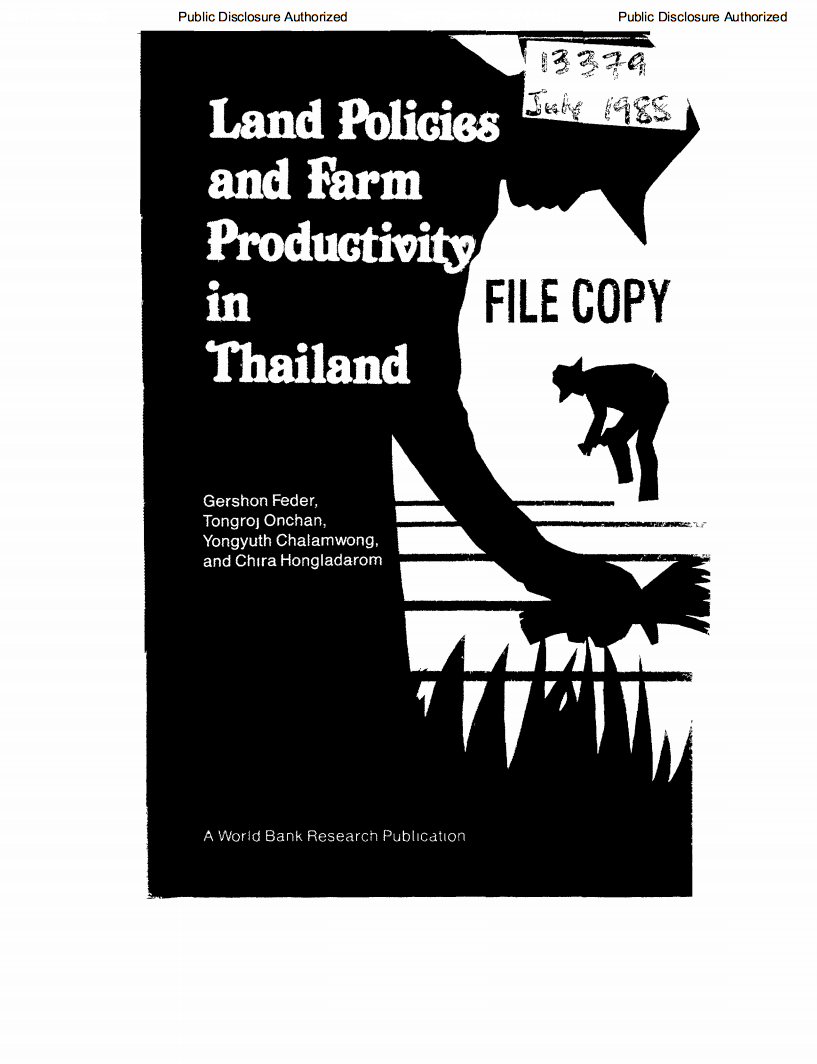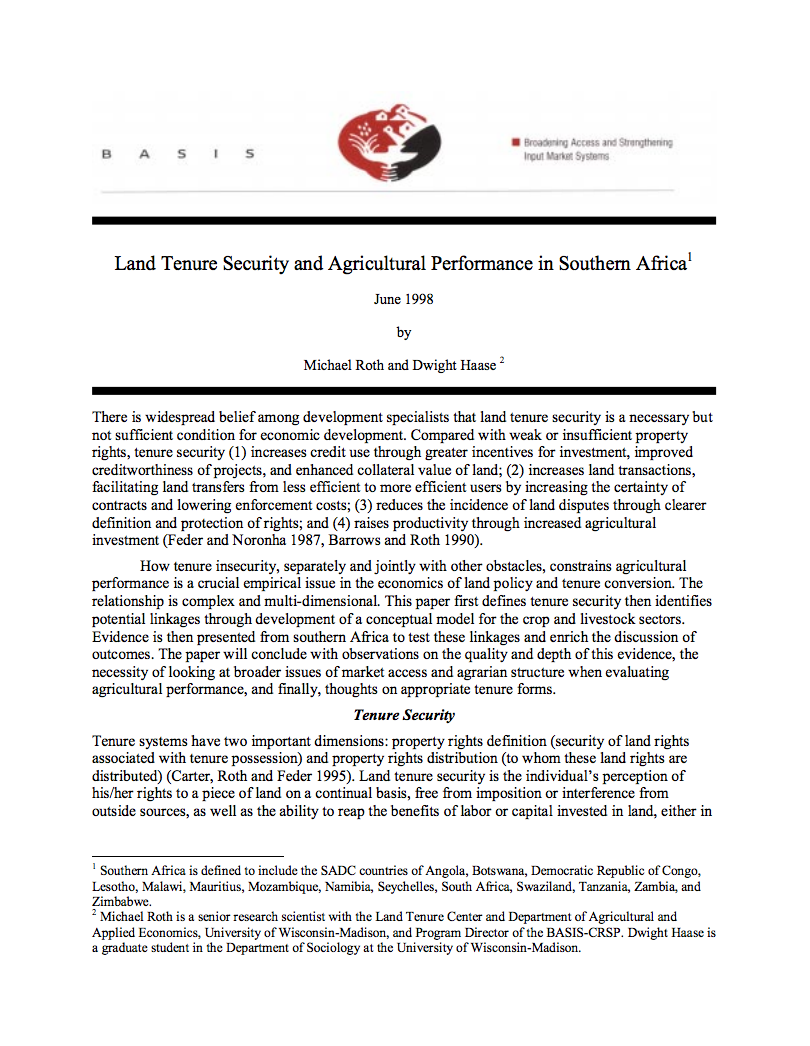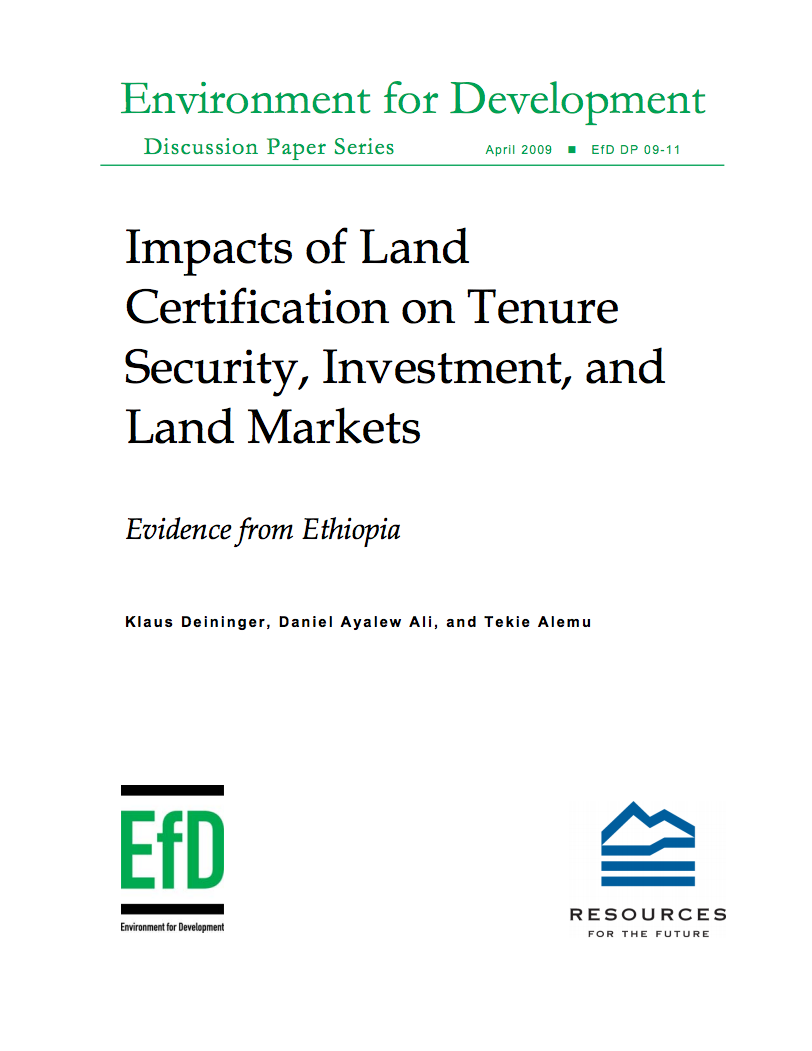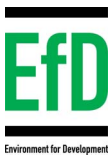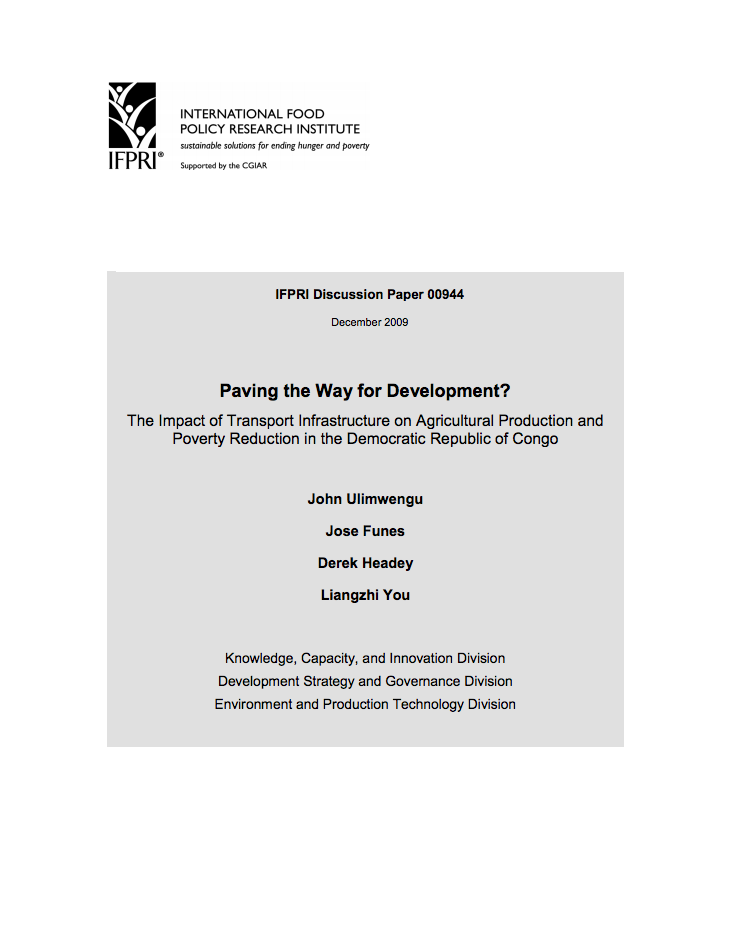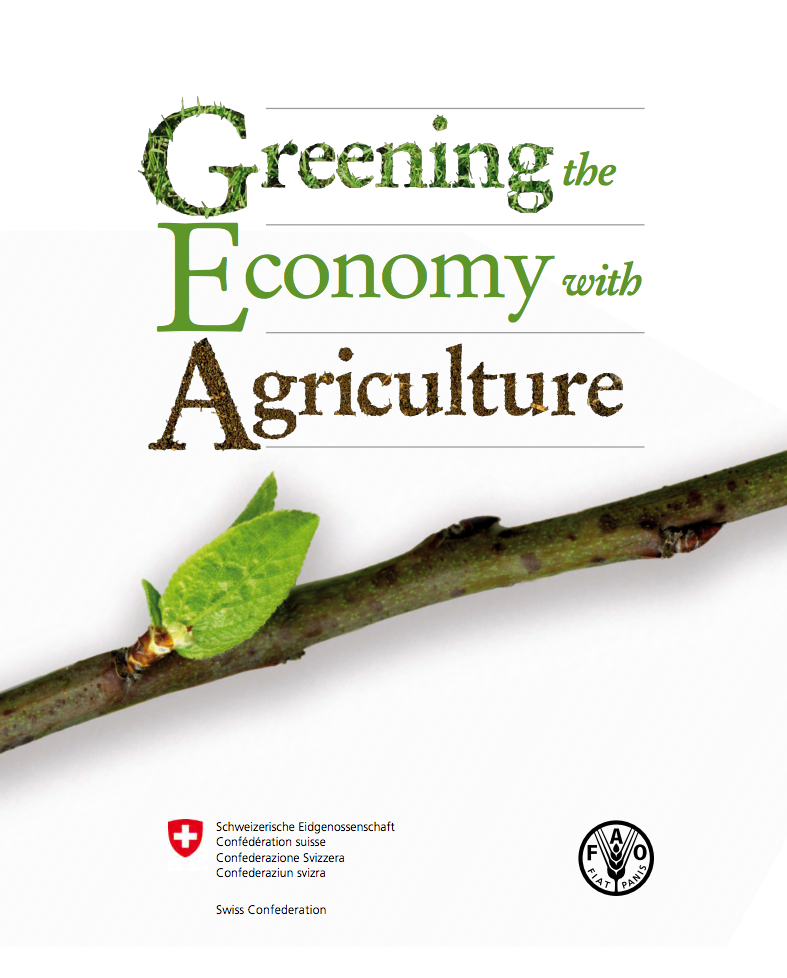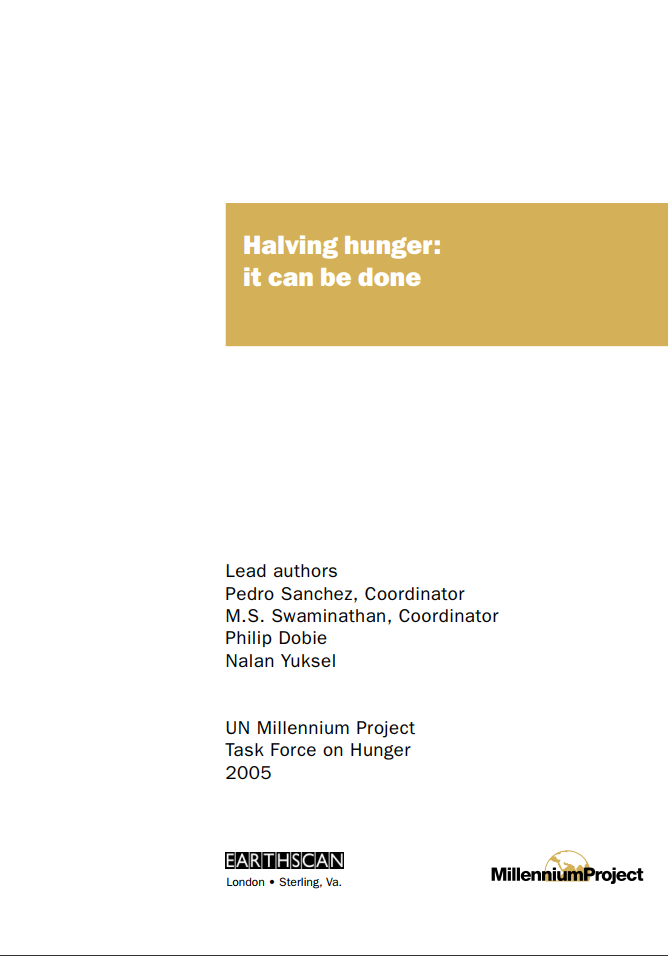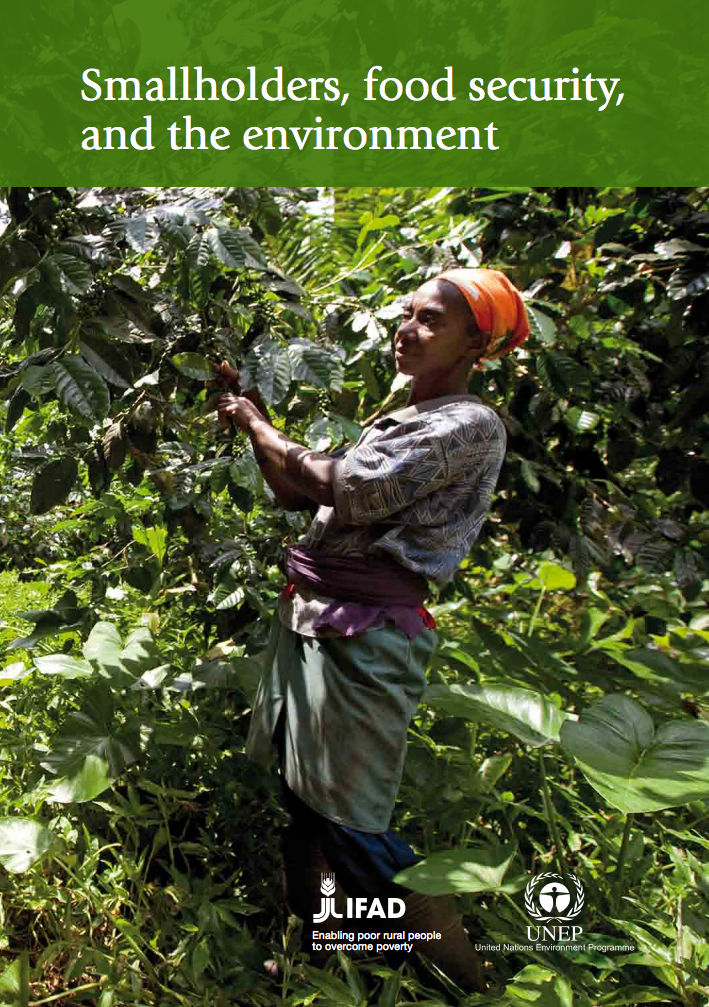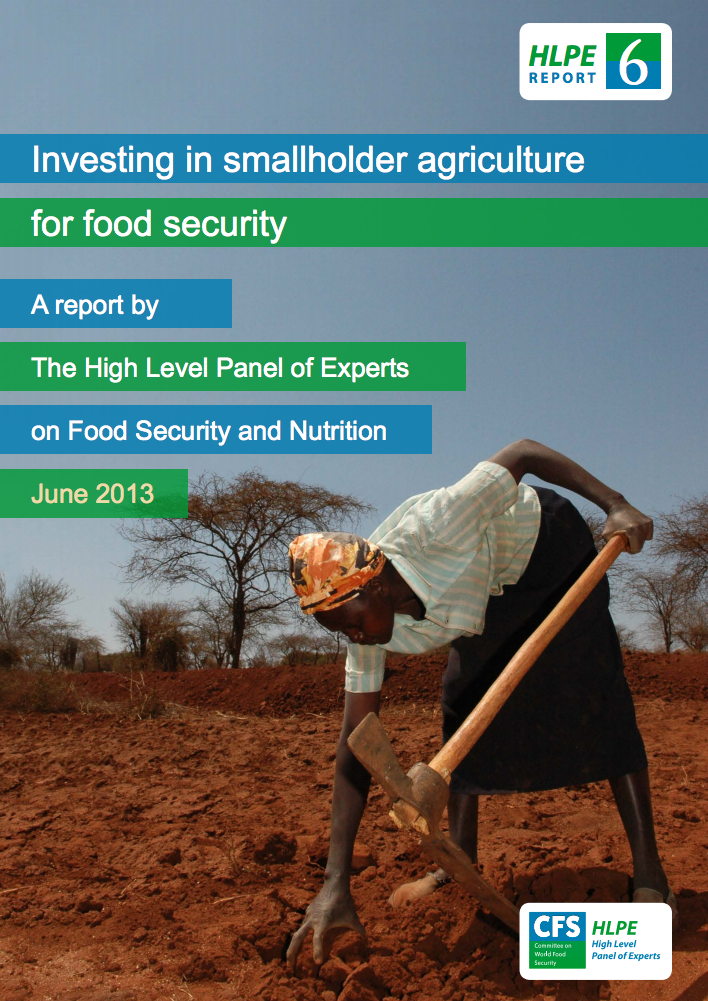Details
Location
Contributions
Displaying 711 - 720 of 2403Land policies and farm productivity in Thailand
This study assesses the economic implications of land ownership security in rural Thailand. It uses data from this country to rigorously analyze several aspects of land ownership security. It provides both qualitative and quantiative information on the effects of ownership security. The study presents a conceptual model and literature review and is followed by separate discussions on the evolution of land rights in Thailand; the study methodology and the nature of the data; and the credit market.
Land Tenure Security and Agricultural Performance in Southern Africa
There is widespread belief among development specialists that land tenure security is a necessary but not sufficient condition for economic development.
Broadening Access and Strengthening Input Market Systems (BASIS) Collaborative Research Support Program
The Broadening Access and Strengthening Input Market Systems (BASIS) Collaborative Research Support Program (CRSP) carries out and disseminates collaborative, policy-oriented research that addresses rural poverty by making markets work for all. The website hosts research reports, working papers, briefs and trip reports.
Impacts of Land Certification on Tenure Security, Investment, and Land Markets
While early attempts at land titling in Africa were often unsuccessful, the need to secure land rights has kindled renewed interest, in view of increased demand for land, a range of individual and communal rights available under new laws, and reduced costs from combining information technology with participatory methods. We used a difference-in-difference approach to assess the effects of a low-cost land registration program in Ethiopia, which covered some 20 million plots over five years, on investment.
Environment for Development
The Environment for Development (EfD) Initiative is a capacity building program in environmental economics focusing on research, policy interaction, and academic programs. The overall objective of EfD is to support poverty alleviation and sustainable development by building environmental economics capacity in policy making processes.
Paving the Way for Development?
Given its vast land resources and favorable water supply, the Democratic Republic of Congo’s (DRC’s) natural agricultural potential is immense. However, the economic potential of the sector is handicapped by one of the most dilapidated transport systems in the developing world (World Bank 2006). Road investments are therefore a high priority in the government’s investment plans and those of its major donors.
Greening the Economy with Agriculture
The United Nations General Assembly (UNGA), through Resolution 64/236 of 24 December 2009, decided to organize the United Nations Conference on Sustainable Development, Rio de Janeiro, 3 to 6 June 2012 (UNCSD, also referred to as Rio+20). The two main stated themes decided by the UNGA for UNCSD are: a green economy in the context of sustainable development and poverty eradication; and the institutional framework for sustainable development. The preparatory process foresees three sessions of the preparatory Committee and three inter-sessional meetings.
Halving hunger: it can be done
Halving Hunger examines current world progress towards eliminating hunger, and calls for the implementation of seven recommendations in the areas of: political action, national policy reforms, increased agricultural productivity for food insecure farmers, improved nutrition for the chronically hungry, productive safety nets for the acutely hungry, improved rural incomes and markets, and restoration and conservation of natural resources essential for food security.
Smallholders, food security, and the environment
There are 1.4 billion poor people living on less than US$1.25 a day. One billion of them live in rural areas where agriculture is their main source of livelihood. The ‘green revolution’ in agriculture that swept large parts of the developing world during the 1960s and 1970s dramatically increased agricultural productivity and reduced poverty. Many of the productivity gains accrued to smallholder farmers, supported through research and extension services.
Investing in Smallholder Agriculture for Food Security
In October 2011, the Committee on World Food Security (CFS) requested the High Level Panel of Experts (HLPE) to prepare "a comparative study of constraints to smallholder investment in agriculture in different contexts with policy options for addressing these constraints, taking into consideration the work done on this topic by IFAD, and by FAO in the context of COAG, and the work of other key partners.


